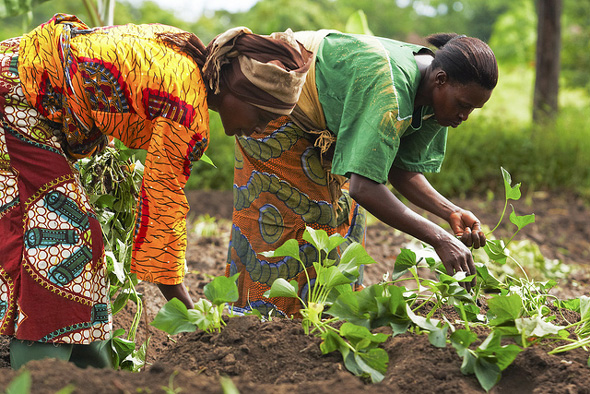A new project on ‘Privatisation of customary land and implications for women’s land tenure security and livelihoods in Southern Africa’
In cooperation with the Austrian Development Agency
African rural women’s land rights are being undermined by rapid and ‘silent’ processes of formalisation and privatisation of customary land. While land-based investments by multinational corporates have exacerbated tenure insecurity among the rural poor—and especially among women—they are not the only important process affecting land rights. This is partly because of adaptations from below to changing local and global context, but also accelerated from above by a resurgence of ‘high modernist’ pro-market land policies. This shift has created a new land tenure regime in Southern Africa but one that remains different from ‘Western legal’ forms of private property. Within this agrarian transition, there is limited empirical evidence to understand the driving factors, outcomes and nature of the obtaining tenure as it relates to the protection of women’s interests in land, land uses and livelihoods.

In cooperation with the Austrian Development Agency, we at PLAAS are implementing an action research project entitled, Privatisation of Customary Land and Implications for Women’s Land Tenure Security and Livelihoods in Southern Africa. Launched in July 2020, this three-year action-research project is being implemented in partnership with civil society organisations in four study countries namely: Livaningo (Mozambique), Nkuzi Development Association (South Africa), Platform for Youth and Community Development (Zimbabwe), and Zambia Land Alliance (Zambia), together with rural women’s movements themselves.
The project builds on the ‘Land and water rights in Southern Africa: Entrenching global and regional policy frameworks’ project (2016-2019). We found that a combination of less visible local processes is at play in reconfiguring land rights, land uses and livelihoods and one cannot understand the problem adequately without a more holistic approach. Between 1990 and 2017 there were 32 new land laws enacted across sub- Saharan Africa, much of it with a focus on reforming rights on customary lands. These have ranged from 1995 Land Act in Zambia to Mozambique’s 1997 Land Law. Most of the reforms allow for surveying of boundaries, registration and documentation, leasing, transfers and selling of customary land.
Against this background, our central question is: How is the formalisation of customary land rights (partly as a response to land grabbing) affecting tenure security, land uses and livelihoods for rural women and with what implications for policy?
Southern Africa provides a dynamic and valuable opportunity for investigating the nature of new land regimes and the differentiated impacts on women because of the dominant dual land tenure systems, which continue to shape agrarian relations. The main categories in Southern Africa remain statutory land tenure, which is administered by officials of the state using statutory law and customary land tenure regimes administered mainly by traditional leaders using cultural practices. The project will examine the main drivers of privatisation of customary land tenure, the extent of privatisation, the features and characteristics of new tenure regimes. The envisaged outcome is that rural women, policy makers and civil society organizations across the four study countries are supported with the capacity, evidence and platforms needed to promote policy formulation and implementation based on local practices and livelihoods realities as opposed to normative perceptions of what tenure system is in place or ought to be place.
For high impact, the project intends to target a diverse range of stakeholders. These include influential policy makers in the Southern African Development Community (SADC), the African Union (AU) and the African Land Policy Centre (ALPC). Across the four countries, we will target policy makers in national governments, traditional leaders as duty bearers and civil society organisations especially rural women’s organisations and land-rights holders and users. The beneficiaries will primarily be women of different socio-economic status, marital status and age who occupy and eke their livelihoods on customary land.
Funders
This project is generously supported by the Austrian Development Agency.

Events


Articles




Land tenure insecurity in Zimbabwe exposes rural communities to intimidation and arbitrary evictions












